When Love Island USA was announced last year, the news was met with both excitement and scepticism. Love Island but set in Fiji with characters likely to be way more confident than their British counterparts? Amazing. And yet, there was scepticism, would the format translate well in the US when it’s entire purpose is to create classically British extremely awkward moments? Well, we're about to find out.
Because, Love Island USA is coming to the UK this weekend, airing on Saturday night on ITVBe. But the biggest question is, should we enter into the marriage-like commitment of starting a new series Love Island? Will anyone else watch it and most importantly, will it be worth it?
If the ratings are anything to go by, Love Island US has proven successful in getting eyeballs. But the reviews, that’s where you see a real divide. According to Nielsen Media Research, ratings for Love Island US average 2.6 million viewers per episode. Compared to the first season of Love Island UK, which averaged 500,000 per episode back in 2015, it’s not great. Because, while it is three times the size, the relative audience in the US is 5 times the size.
Plus, Love Island US is starting at a time when Love Island UK has blasted it’s competition out of the market and created a global phenomenon – so much so that Americans are even obsessed with the UK version, with Orange Is The New Black even nodding to it in the latest series. Yes, there is a lot more competition for dating shows in the US with The Bachelor and it’s relative spin-offs – but with so much steam already existing around the Love Island brand you would surely expect the ratings to be better right off the bat.
So what has been different about Love Island US? According to the reviews, there are a ton of reasons. So we’ve broken them down for you to understand just how Love Island US strayed from the ratings revel the British counterpart has become…
The format is exactly the same – but the cast are very different
Literally everything is the same about Love Island US, save for a few different producer interventions on dates. But generally, the format has not strayed at all. What is very different, and this is obvious even from the first Islander interviews, is the way the cast fit into that formula.
Where the concept of the British show forces drama through awkward moments and villainous bombshells, the US cast tends to take the rollercoaster in their stride. From the off the cast are all very open and honest about what they want and need. They’re confident, they’re self-aware and they don’t seem to care too much what others think. Ultimately, that means there’s no insecurity-driven self-esteem issues that naturally make Love Island UK as toxically dramatic as it is.
There’s a lot less drama
The result of this means that, while emotionally healthier, there is a lot less drama.
‘Nothing interesting happens,’ Kathryn Van Arendonk wrote for Vulture when the show was still airing, ‘The betrayals are low-key. The participant who was kicked off in the first week did not seem upset. The relationships currently forming seem mostly friendly, with very little sexual tension. Every time a camera catches two people having a potentially fraught conversation, it mostly fizzles.’
But, does this mean they’re actually looking for love?
One token of the British show, while commonly viewed as a flaw of the series, is that the contestants often don’t seem that authentic in their pursuit of love. Last season was proof enough of that when most of the male Islanders did not seem to care for any long-term emotional commitment, with Jordan Hames literally dumping his girlfriend Anna Vakili two days before the finale.
Why are there a bunch of blatant f*ckboys on the show? Because the power of Love Island fame means it has attracted wannabe influencers, and while that does mean the whole point of the show dilutes, it also creates a ton of drama. The fact that the Brits are mostly just looking for exposure creates an entire new dynamic where cast members want to play a role. They want to be the alpha male, the lovable romantic, the strong woman who doesn’t take any shit, the villain or the hero.
The Brits fill a role in the show that leads to inevitable drama, and the US Islanders just don’t seem to play those parts. They seem to genuinely want to meet someone, and so as people who don’t particularly care for their reputation, the drama falls victim to their authentic intention.
Watch: Things you only know if your a Love Islander according to Amy Hart
Of course, they’re all still beautiful and thin
That’s a concept that will never change no matter where Love Island is filled. While this year’s cast proved more diverse in race and sexuality than the first season of Love Island UK, the islanders were all still gorgeous, slim, toned and tanned – shock.
Obviously, the US villa is better
But unfortunately, that doesn’t add to the appeal. Sitting in a villa in Fiji might be more aesthetically pleasing than Mallorca, but given the contestants are still just in a villa the whole time, the added benefit of being in a romantic, exotic location doesn’t add much to the series at all.
The US presenter was made in a Caroline Flack factory – with extra doses of the funny gene
‘The US team have managed to literally replicate Caroline Flack in the form of Arielle Vandenberg,’ journalist Lauren O’Neil wrote for Vice, ‘an American influencer who seems to have studied Flack's every move, so spookily nailed does she have her every beat.’
However, this view has been contested by Radio Times, who maintain that while the US presenter is similar to Caroline, she is trying to distinguish herself with humour. ‘While Caroline is queen of the slow-mo sashay and the dramatic pause, Arielle brings more laughter to the role, with her opening scenes showing her face-plant into the sea as she runs along the beach,’ they wrote.
But the narrator cannot compete with Iain Stirling
Stirling’s US counterpart is Matthew Hoffman may attempt the same sarcastic humour, but according to the Radio Times it ‘just doesn’t sit right’ and ends up being dry. Unable to find the balance between edgy and endearing, it seems that where Stirling often saves the UK show during it’s less entertaining times, the US version doesn’t benefit from the same blessing.
It’s still addictive
Despite the reviews that dub the show boring, reviewers maintain that regardless of their wish to stop watching, they really, really can’t. Much like the UK show about half way through when you’re wondering why you gave your entire social life up to watch two people talk about cheese toasties, the show is addictive.
‘There is something about it, something about the insularity and banality of it all, that makes the show hard to quit,’ VanArendonk concluded.
And it’s this very point that mean while ratings for the show are low, CBS has won in terms of maintaining an engaged audience. ‘But even if there were fewer viewers, the folks who did watch Love Island are arguably more valuable to CBS,’ wrote Josef Adalian in Vulture, ‘They are younger, more engaged, and more of them are women.’
It seems that just like our UK version, Love Island will fast become the show that just won’t quit in the US. Soon, the entire world will be spending their Summer’s trapped inside watching beautiful people in bikinis fall in ‘love’. Sounds healthy.
Read more: The best Love Island Twitter reactions
Best Love Island Twitter Reactions 2019
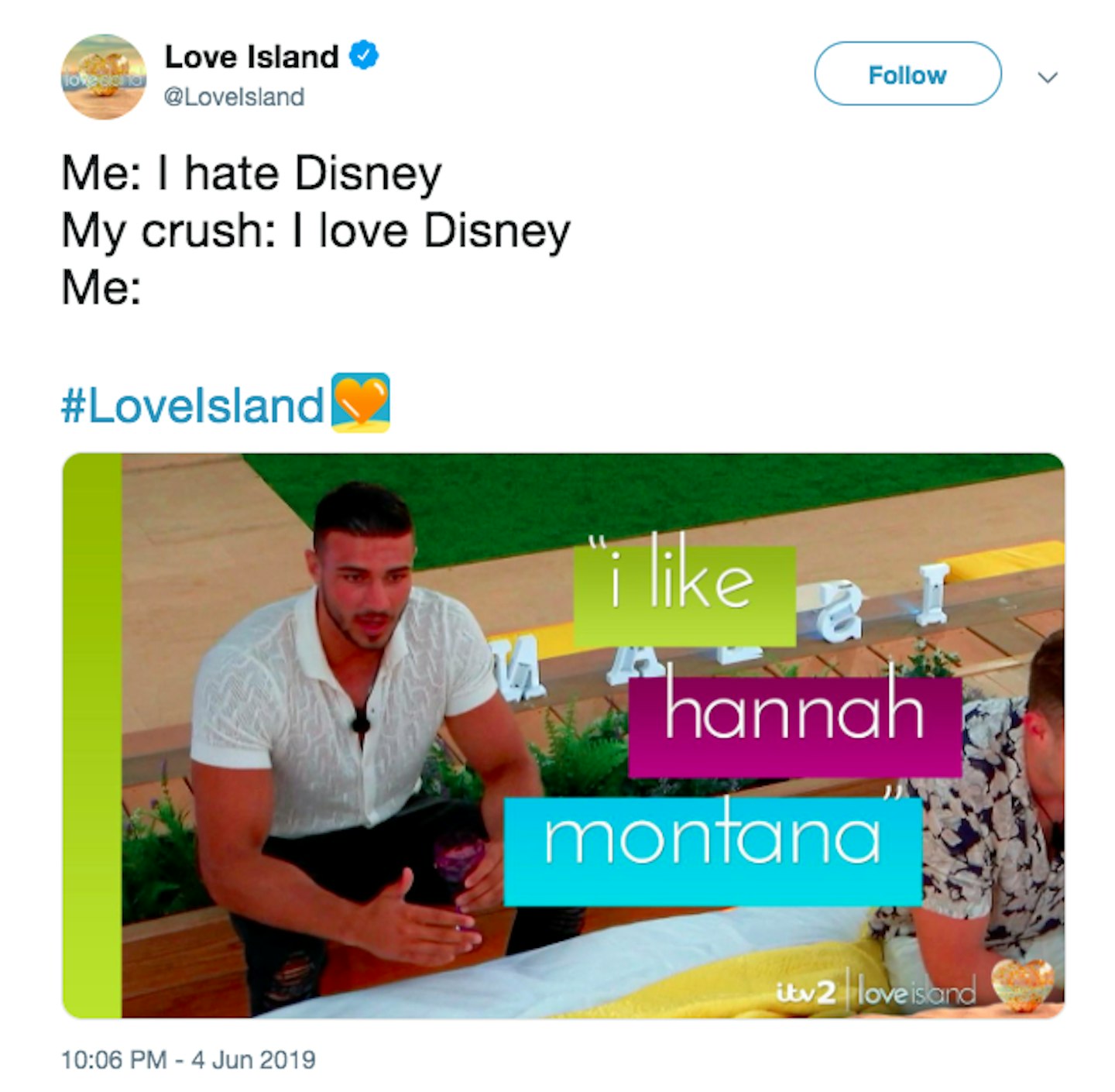 1 of 33
1 of 33love island twitter
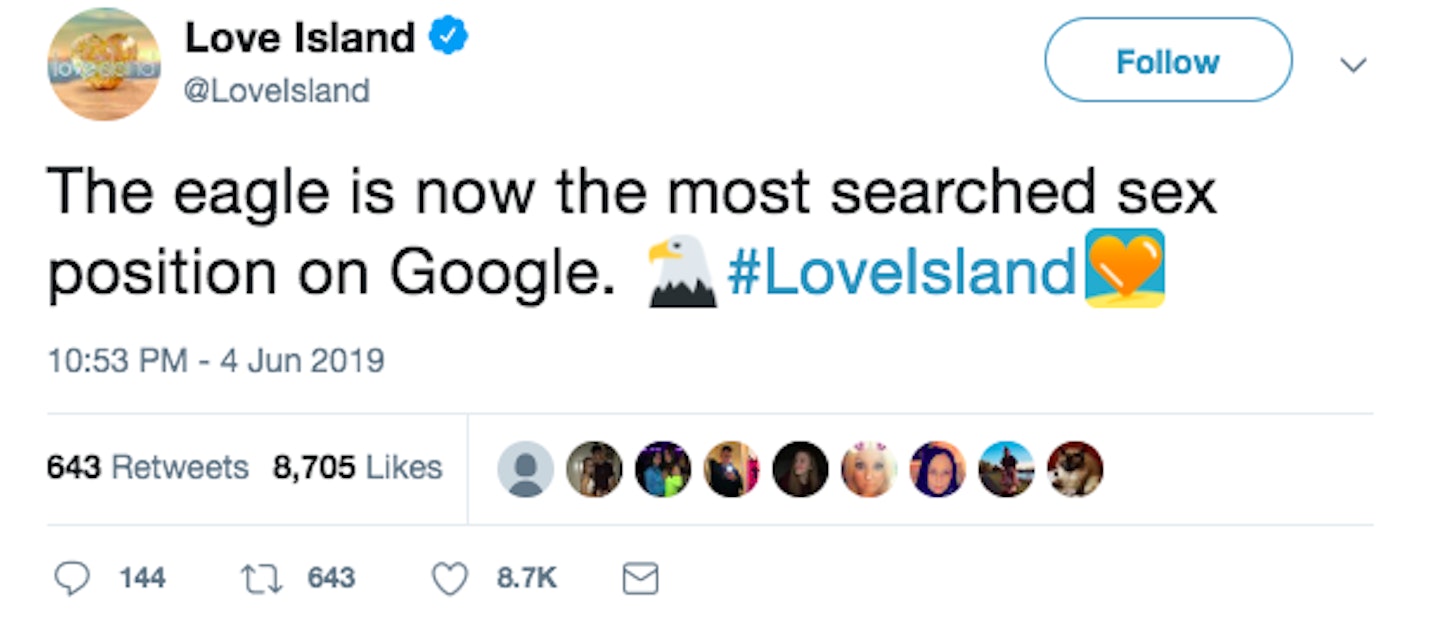 2 of 33
2 of 33love island twitter
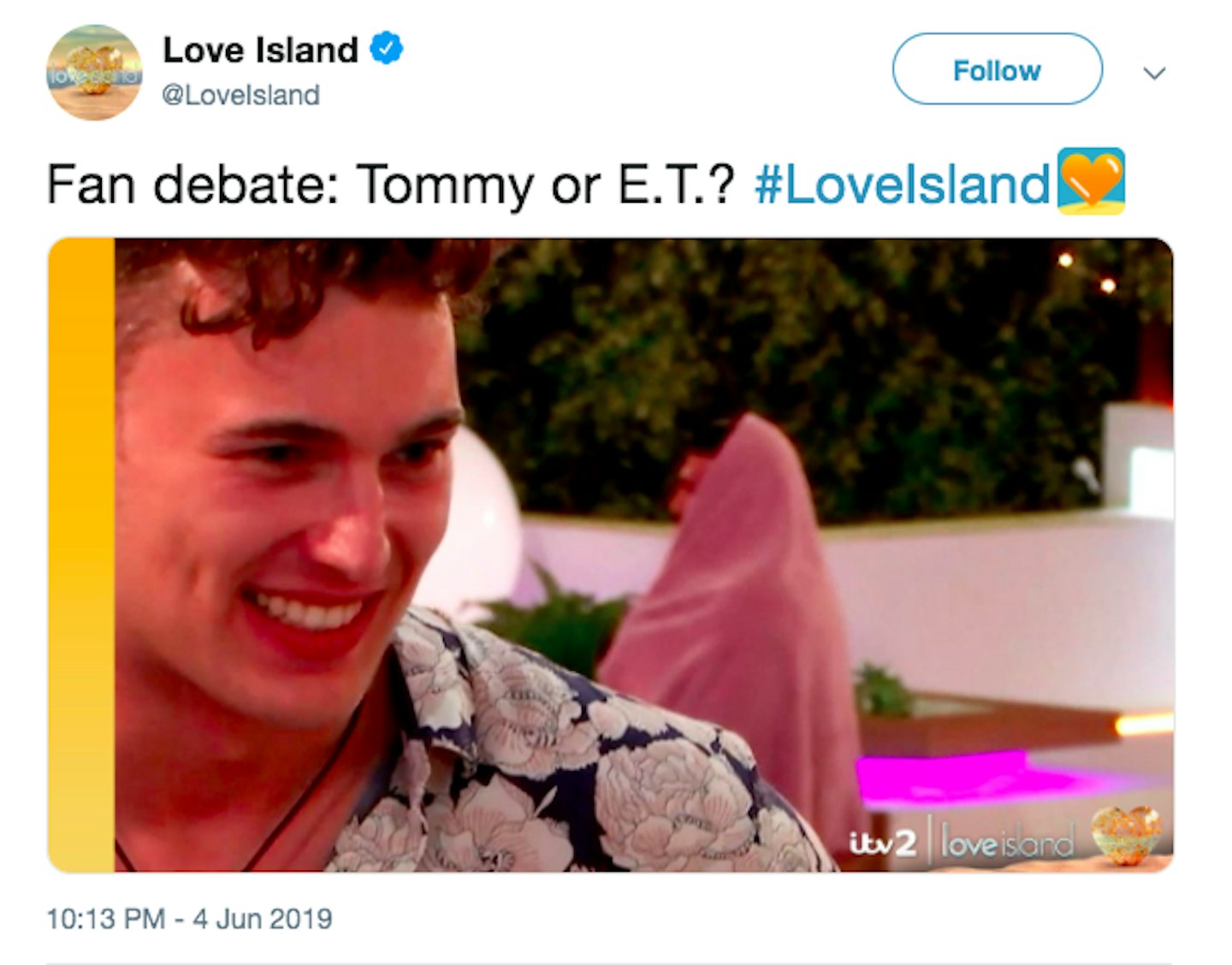 3 of 33
3 of 33love island twitter
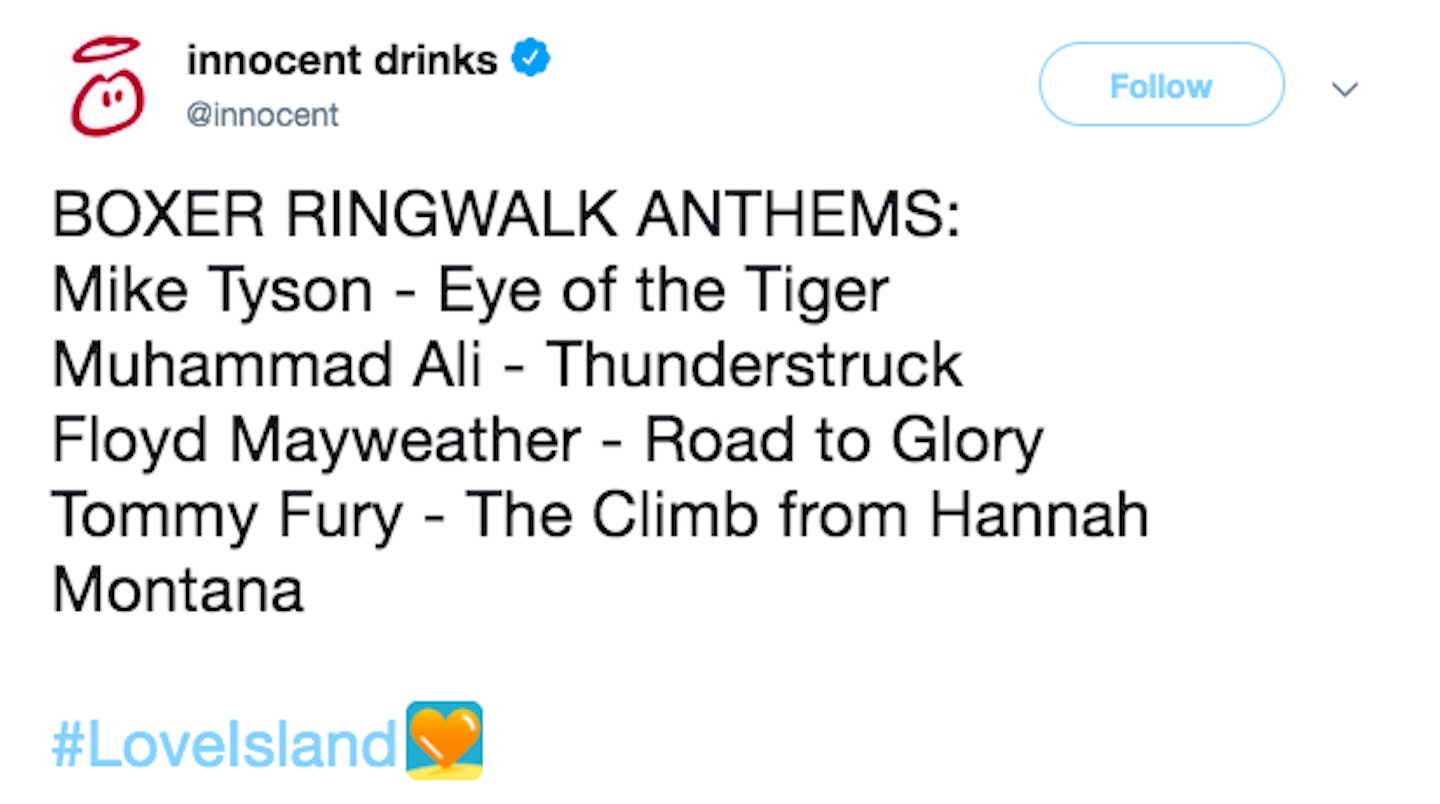 4 of 33
4 of 33love island twitter
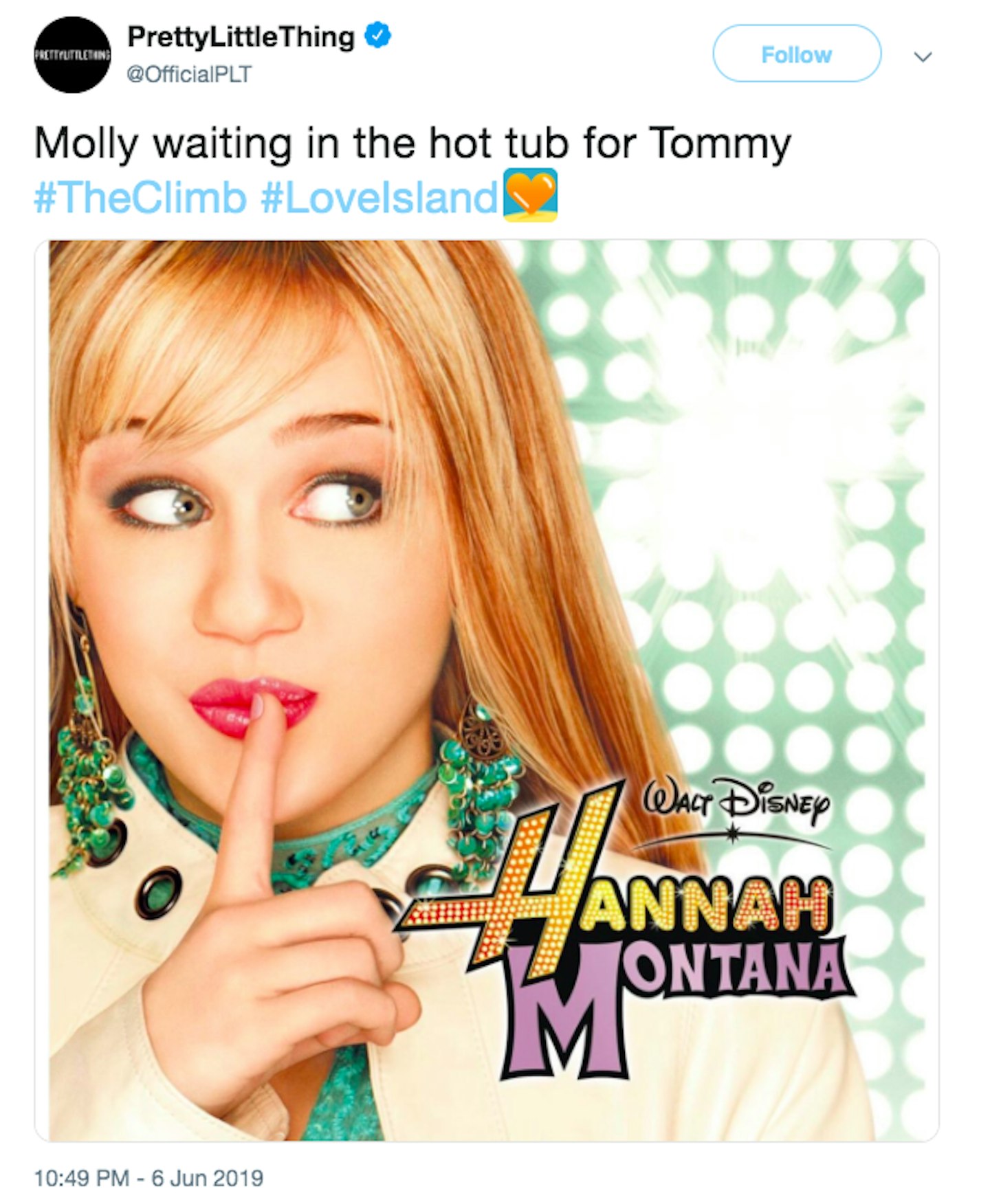 5 of 33
5 of 33love island twitter
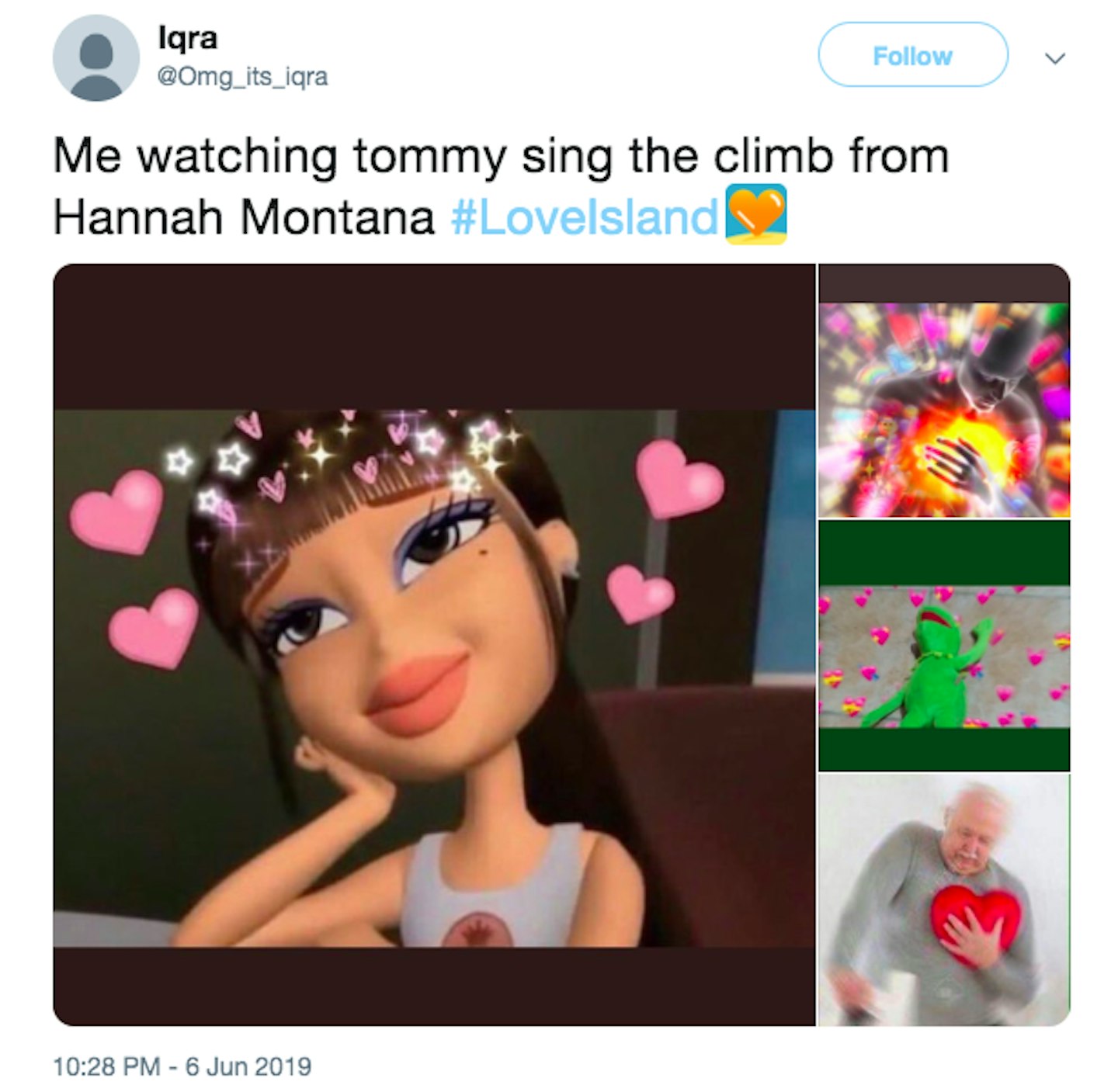 6 of 33
6 of 33love island twitter
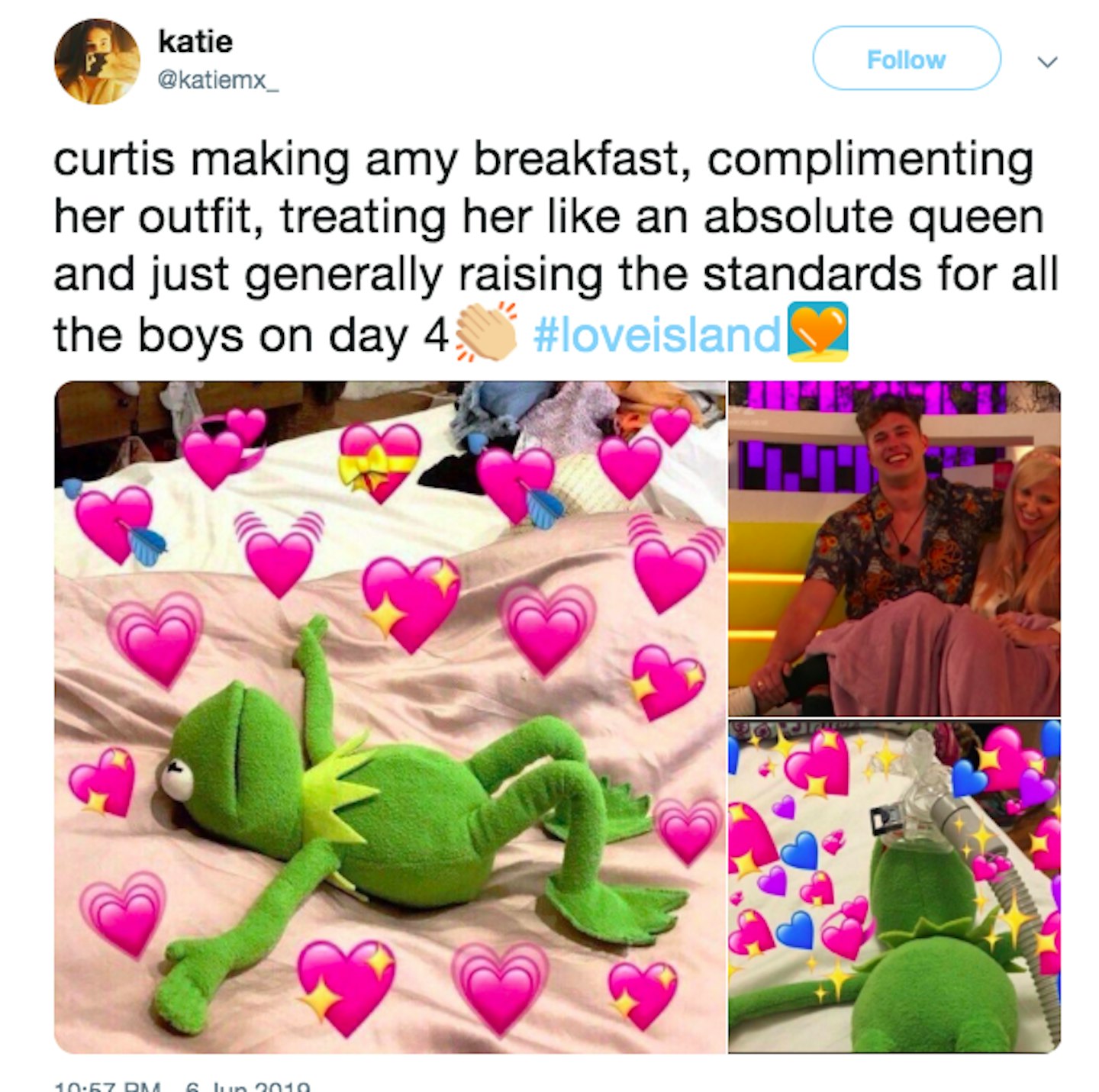 7 of 33
7 of 33love island twitter
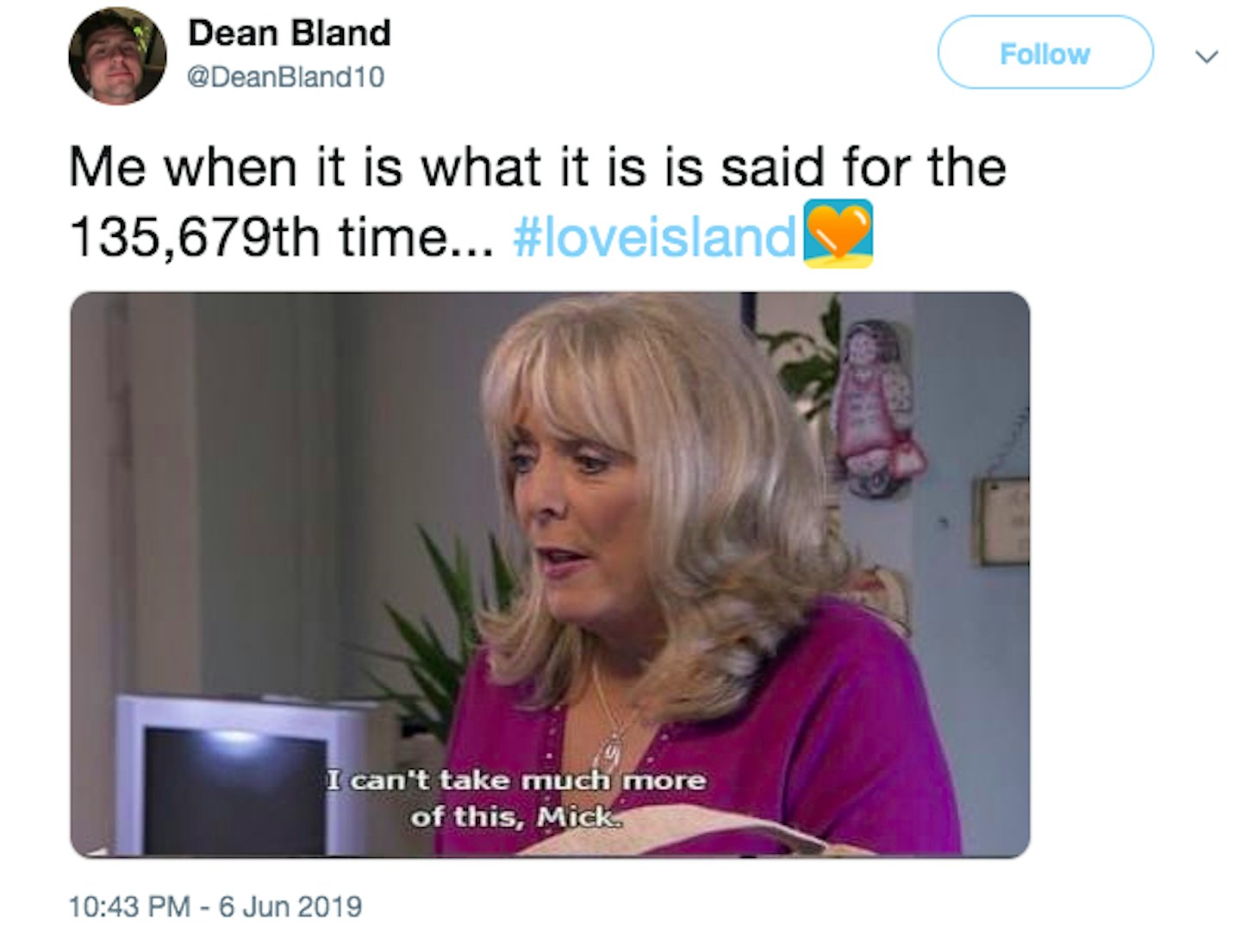 8 of 33
8 of 33love island twitter
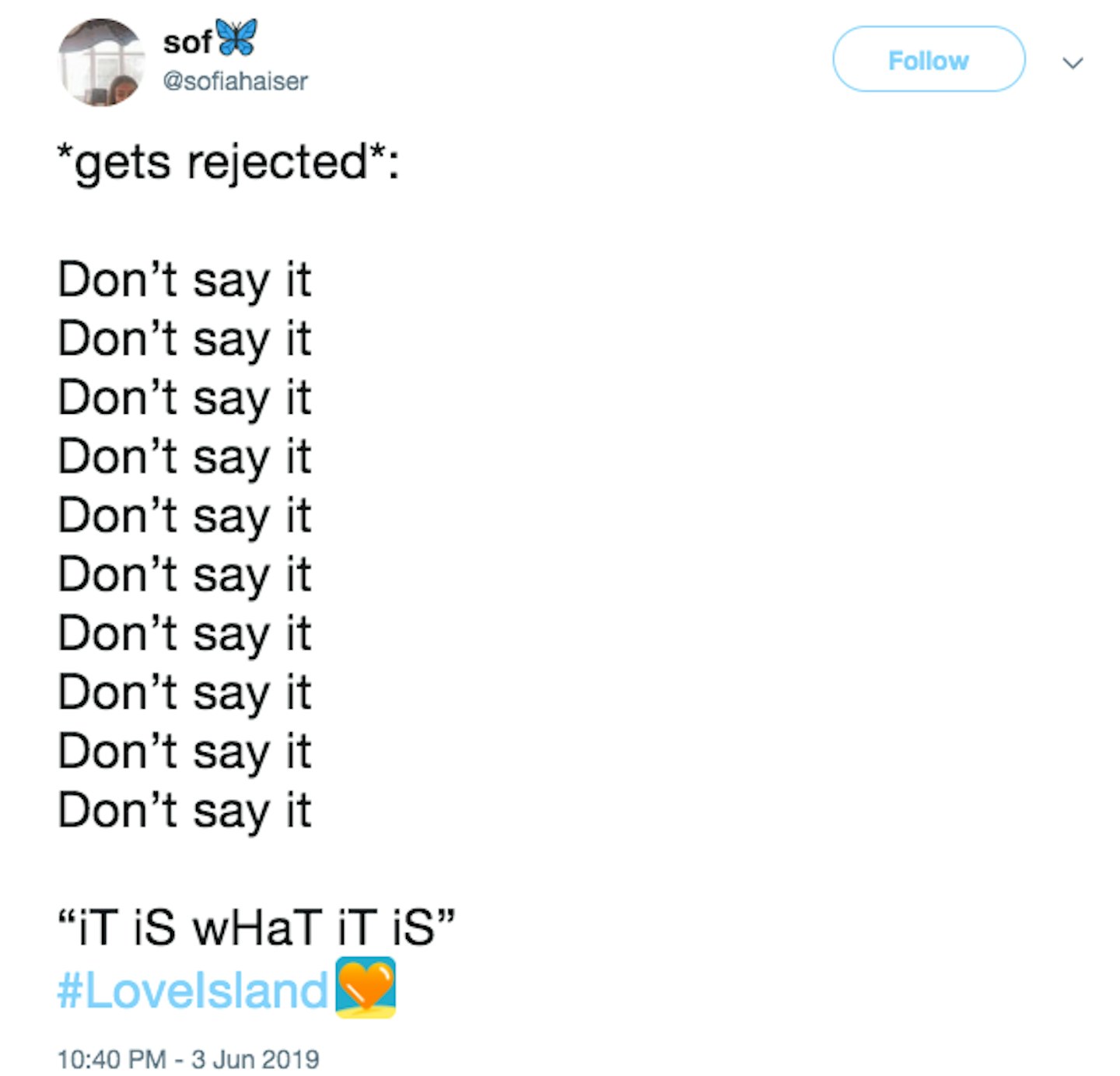 9 of 33
9 of 33love island twitter
 10 of 33
10 of 33love island twitter
 11 of 33
11 of 33love island twitter
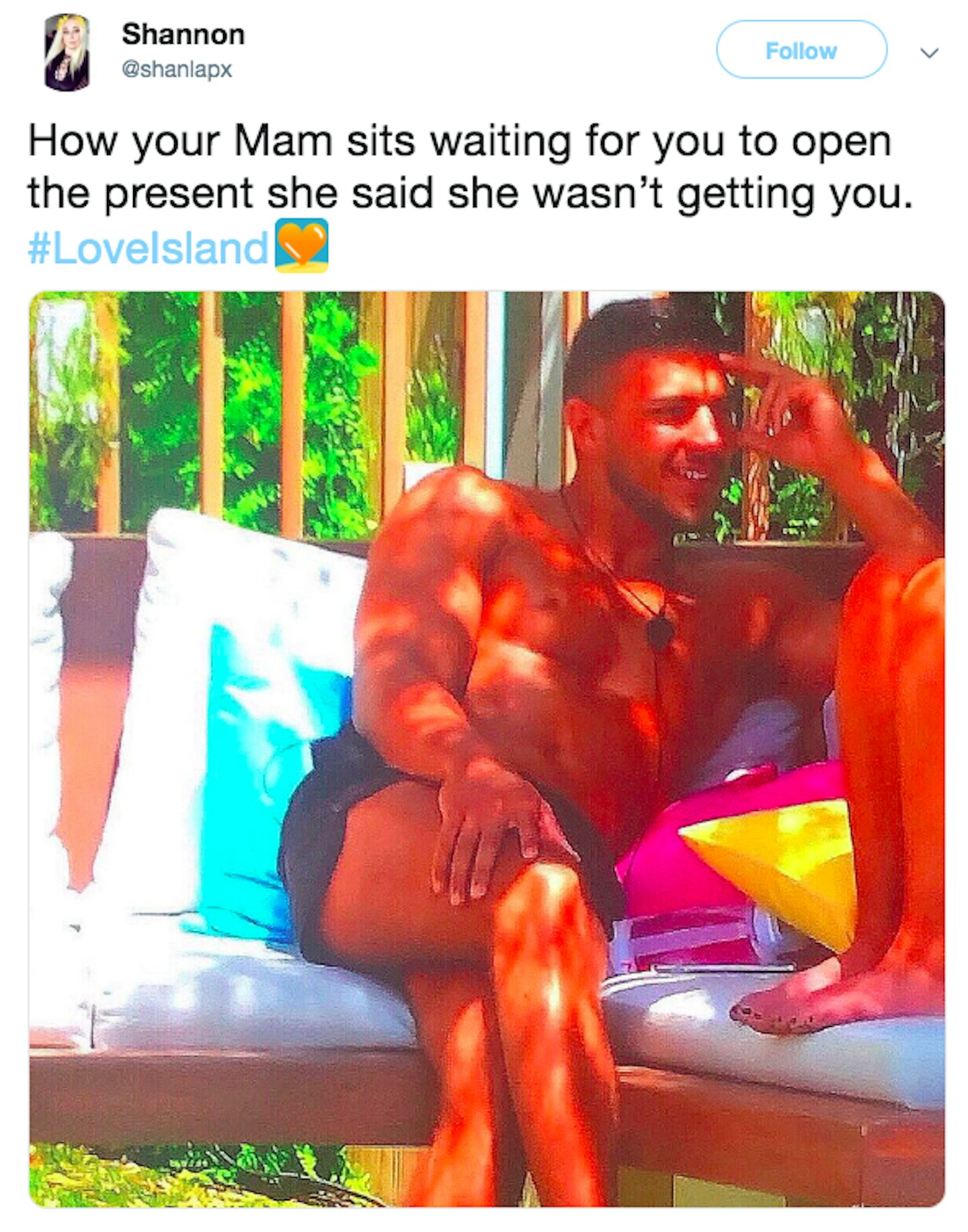 12 of 33
12 of 33love island twitter
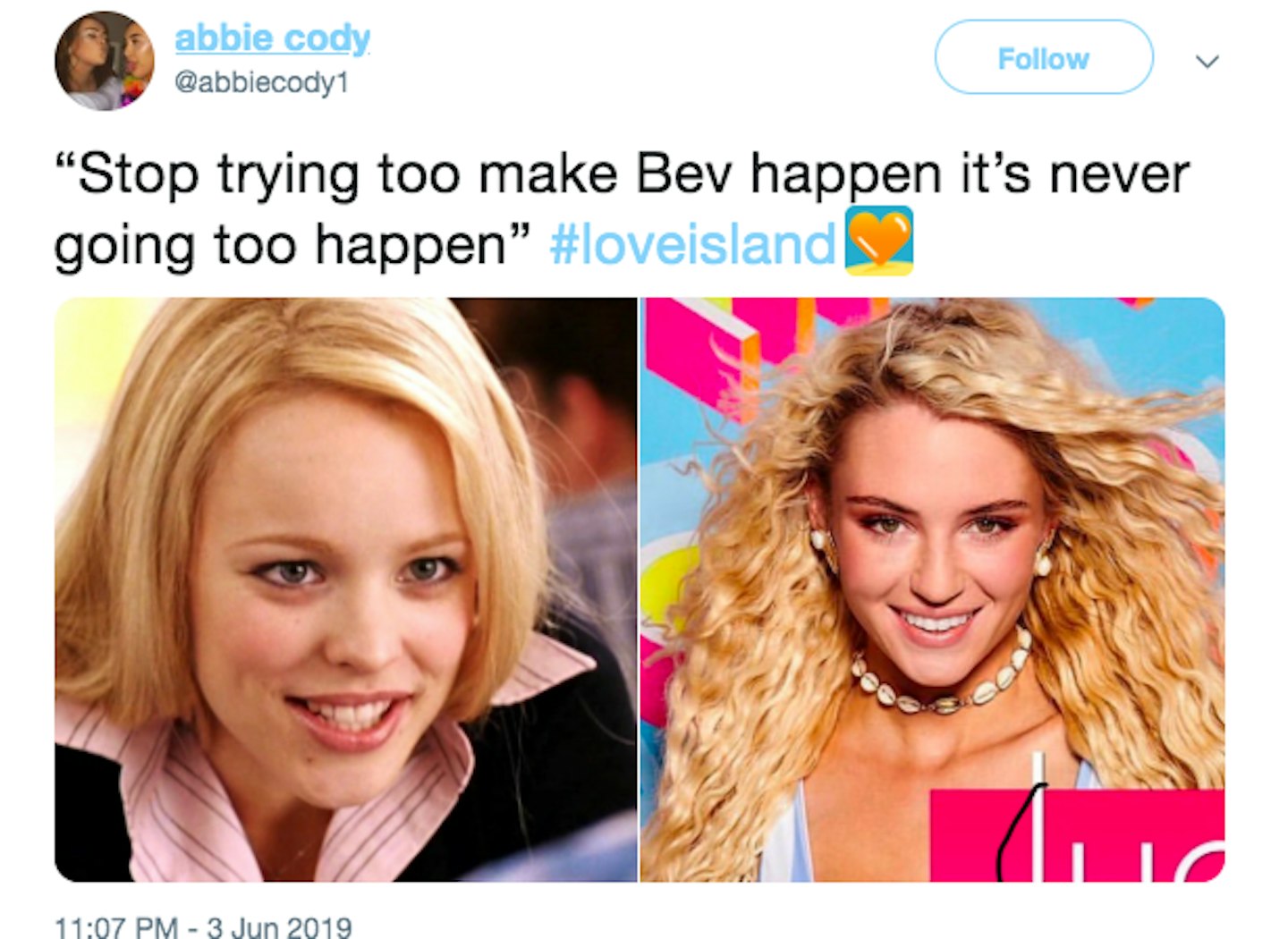 13 of 33
13 of 33love island twitter
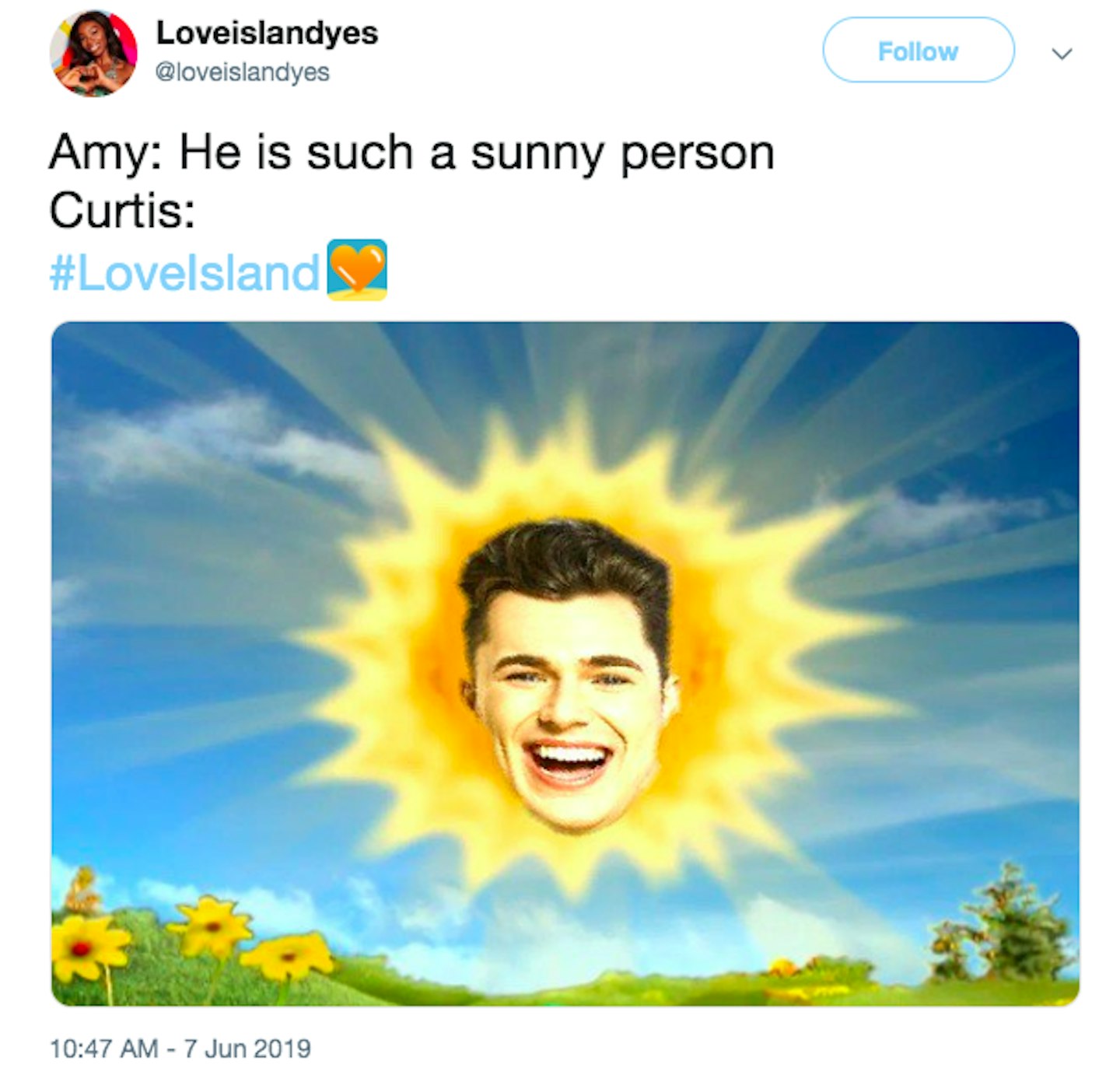 14 of 33
14 of 33love island twitter
 15 of 33
15 of 33love island twitter
 16 of 33
16 of 33love island twitter
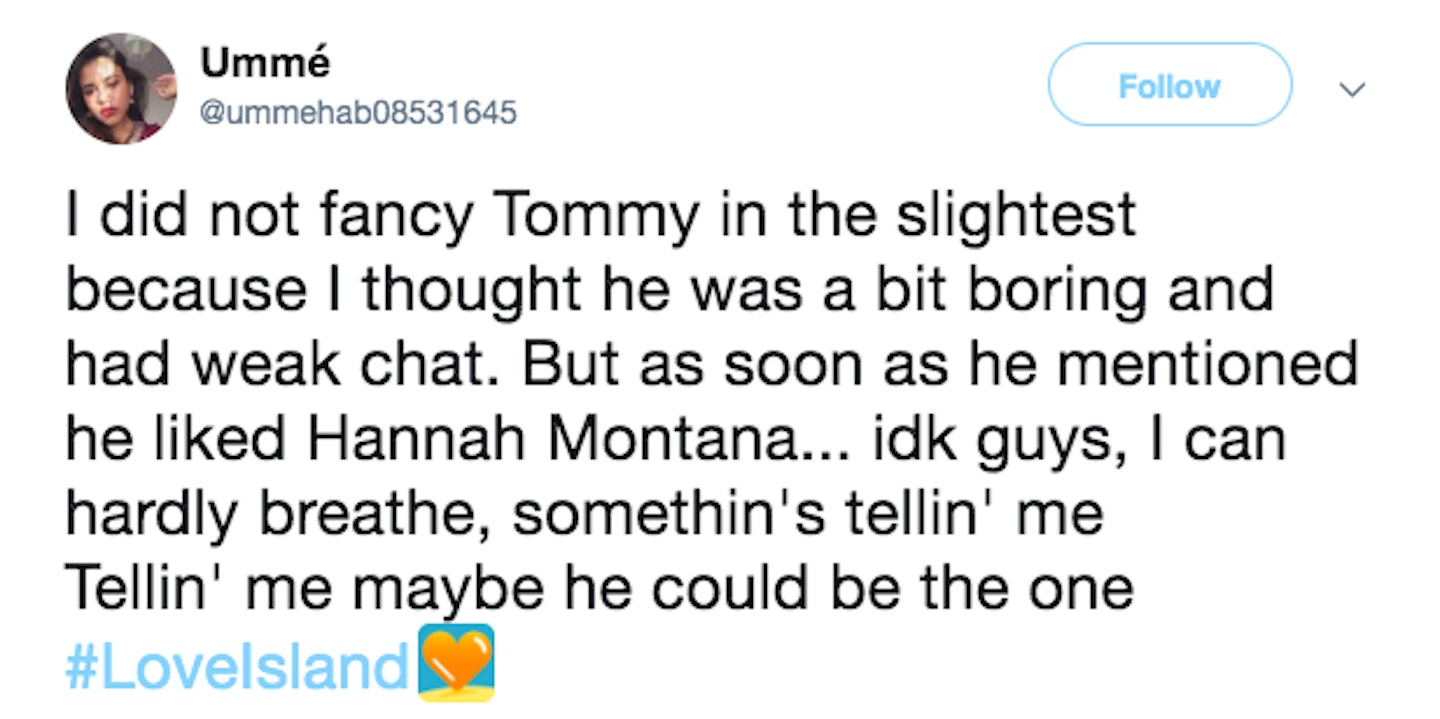 17 of 33
17 of 33love island twitter
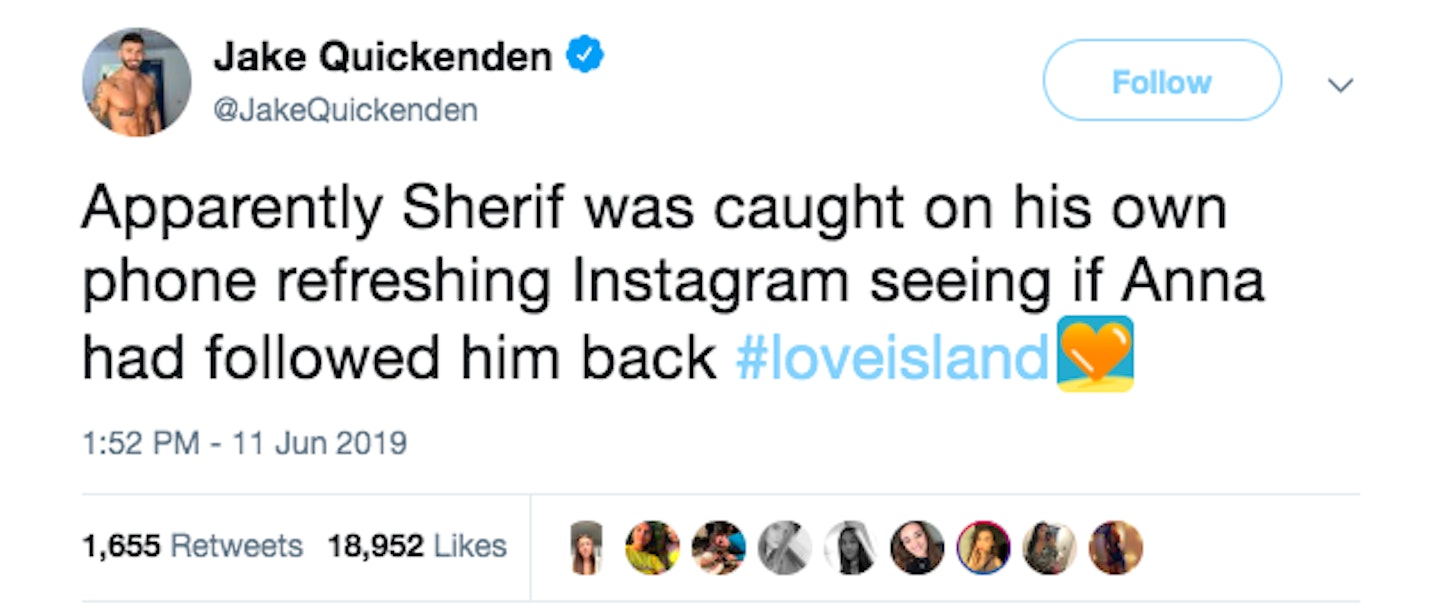 18 of 33
18 of 33LOVE ISLAND TWITTER
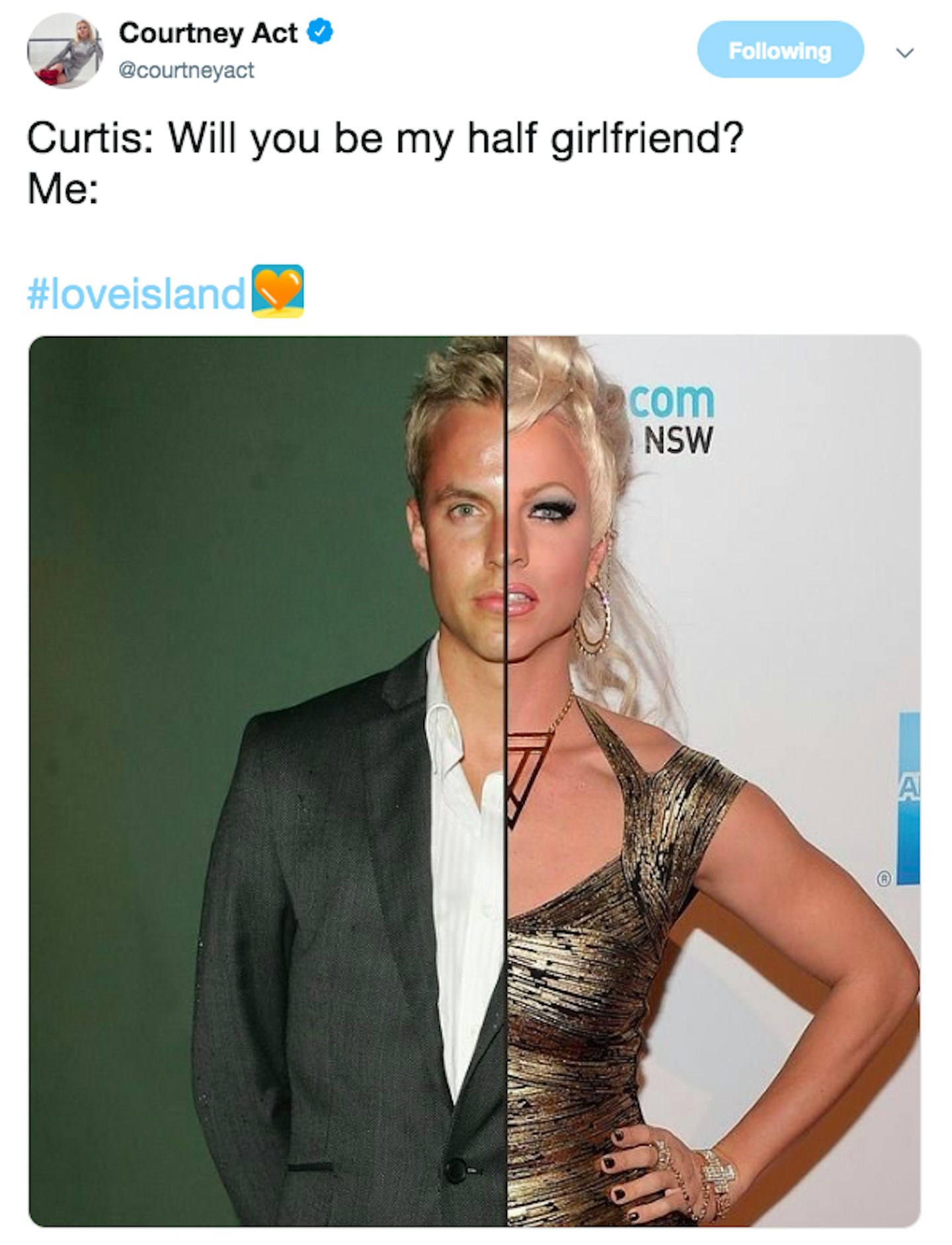 19 of 33
19 of 33LOVE ISLAND TWITTER
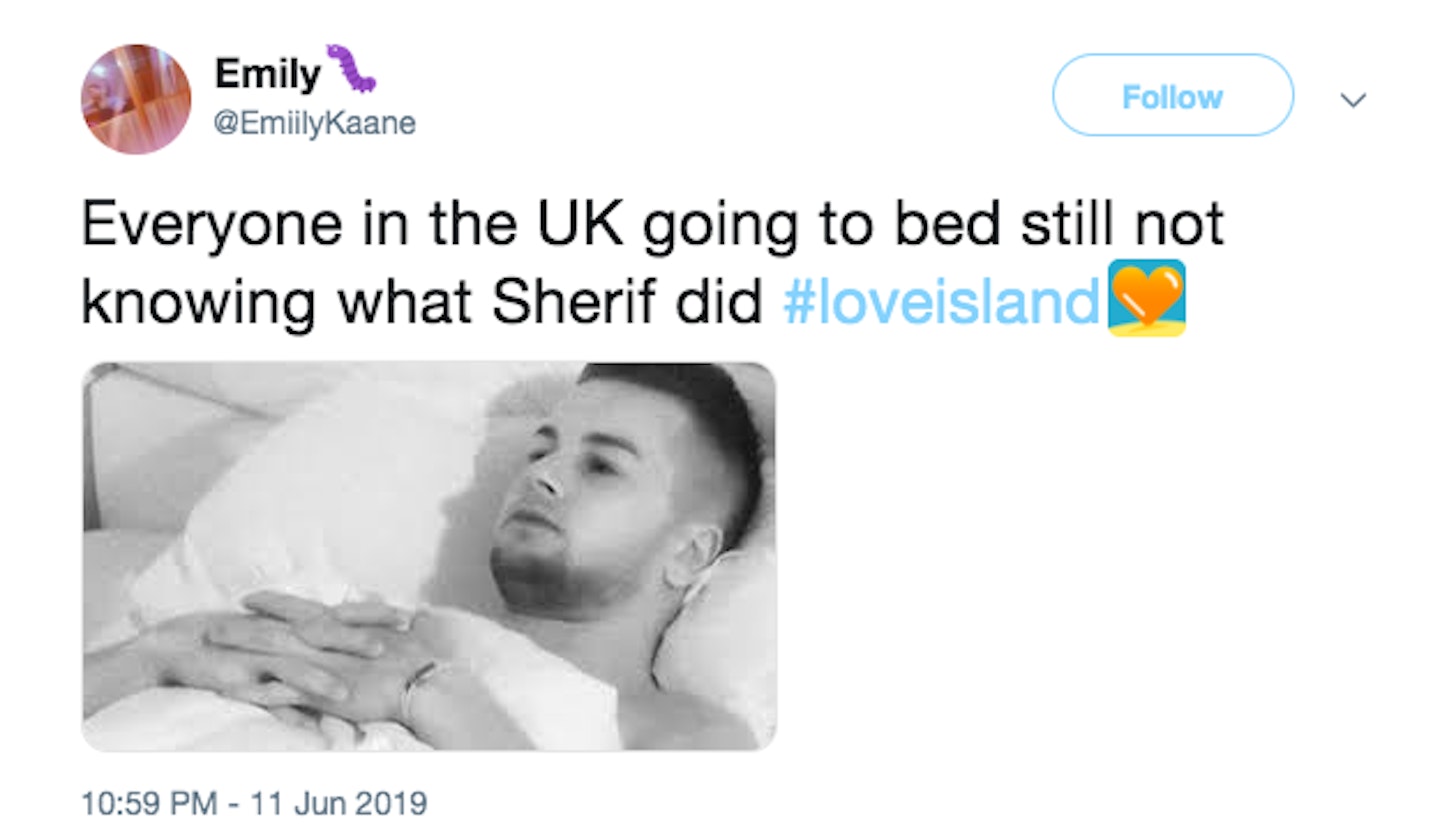 20 of 33
20 of 33LOVE ISLAND TWITTER
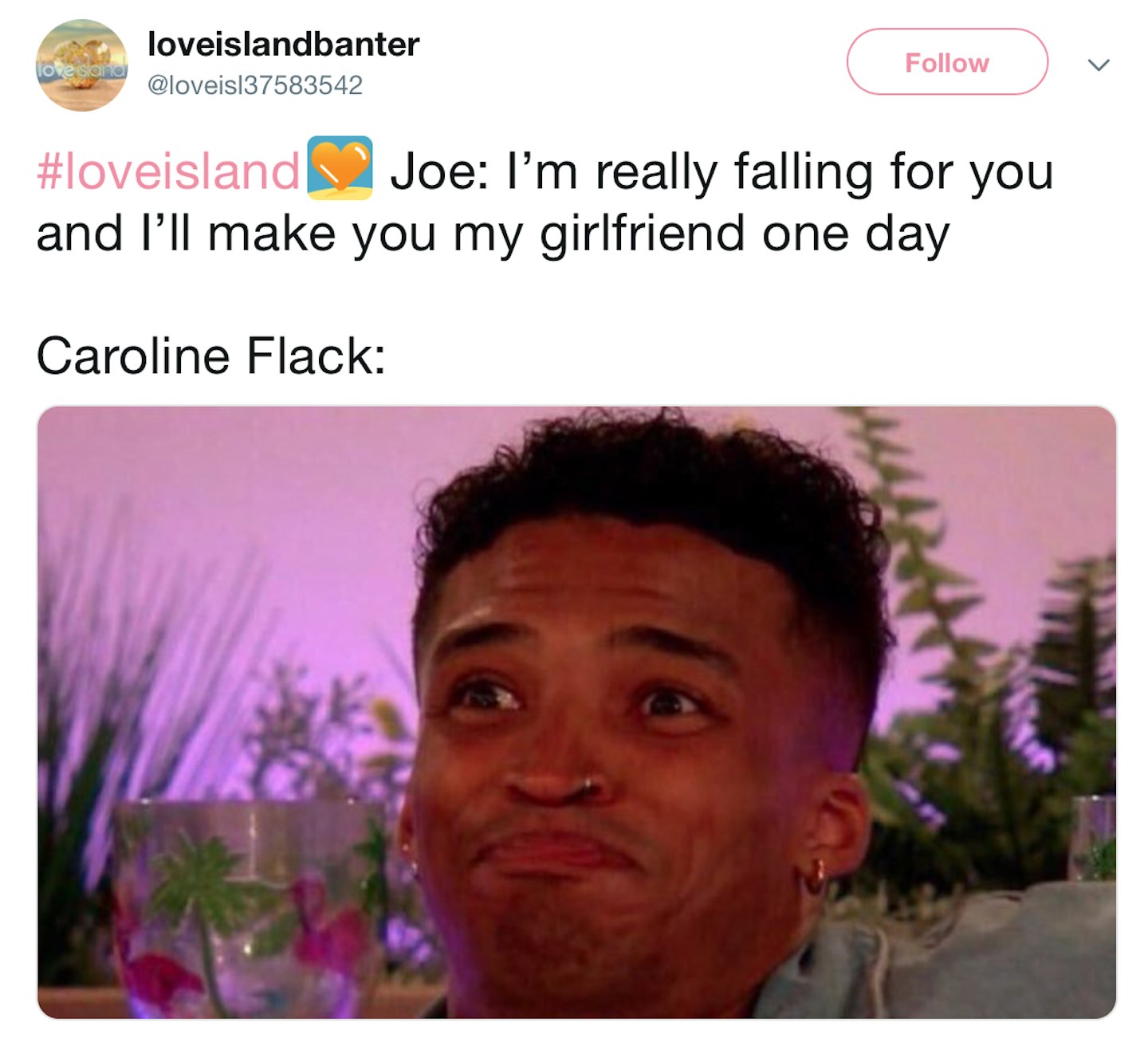 21 of 33
21 of 33love island twitter
 22 of 33
22 of 33love island twitter
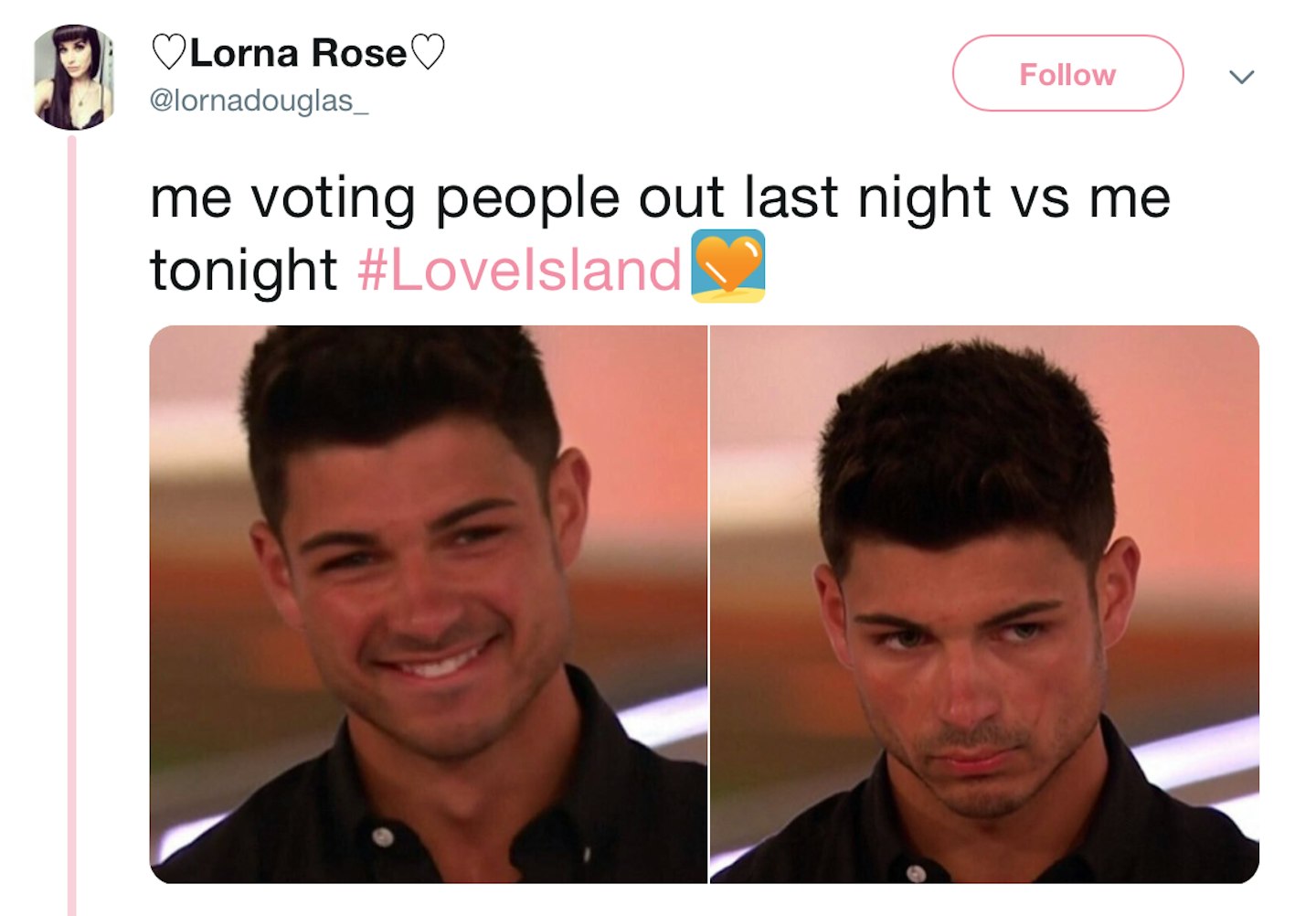 23 of 33
23 of 33love island twitter
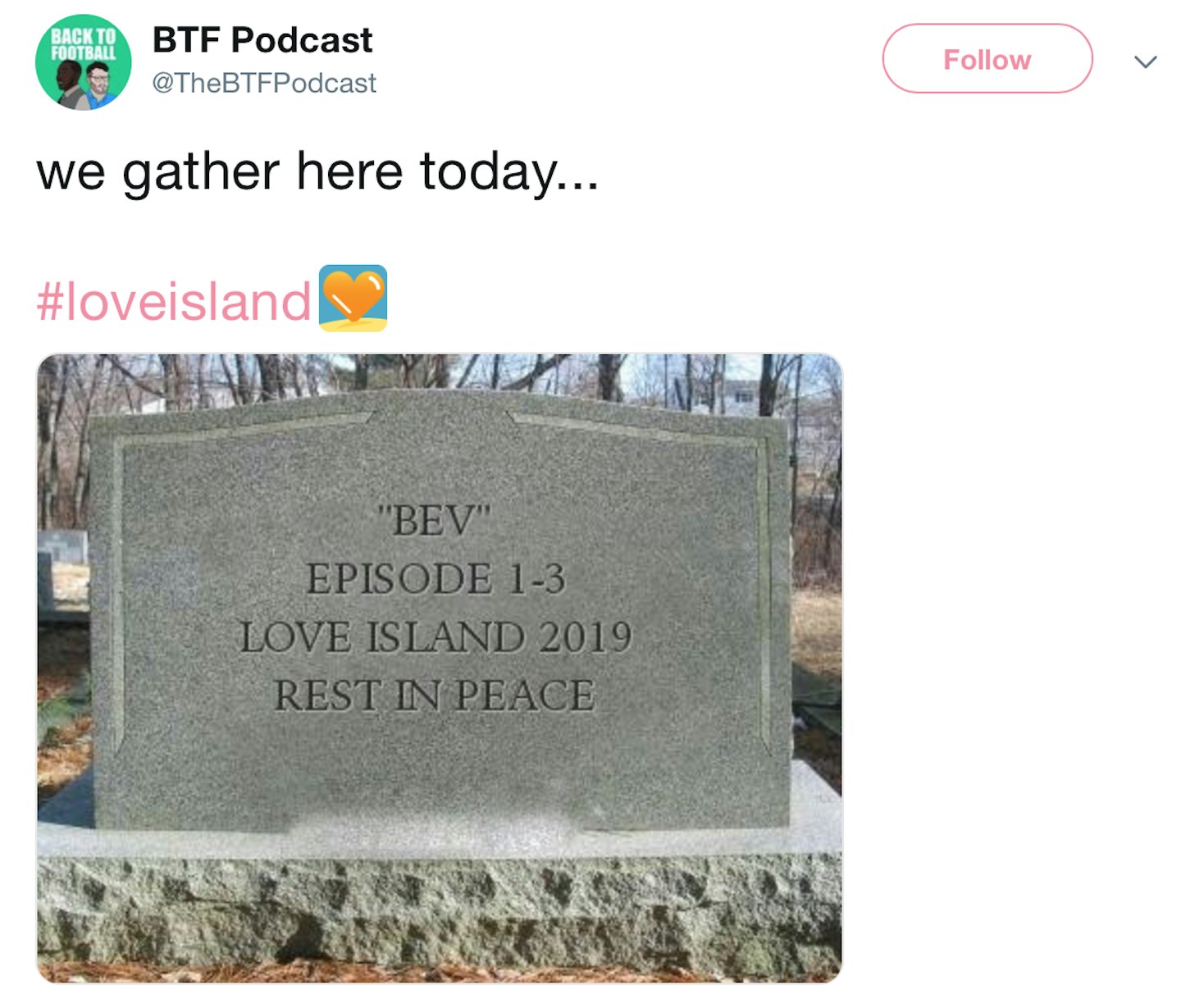 24 of 33
24 of 33love island twitter
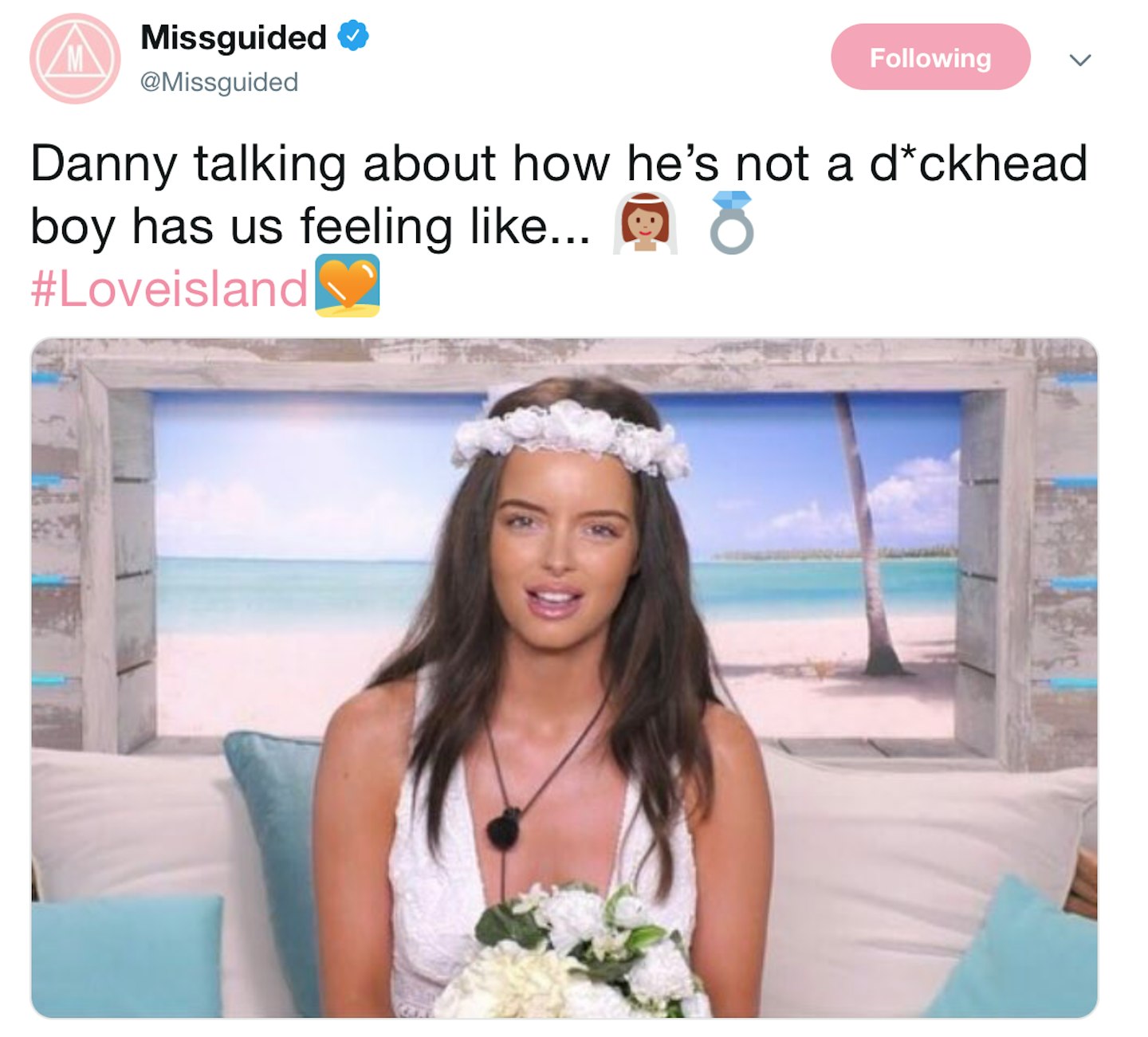 25 of 33
25 of 33love island twitter
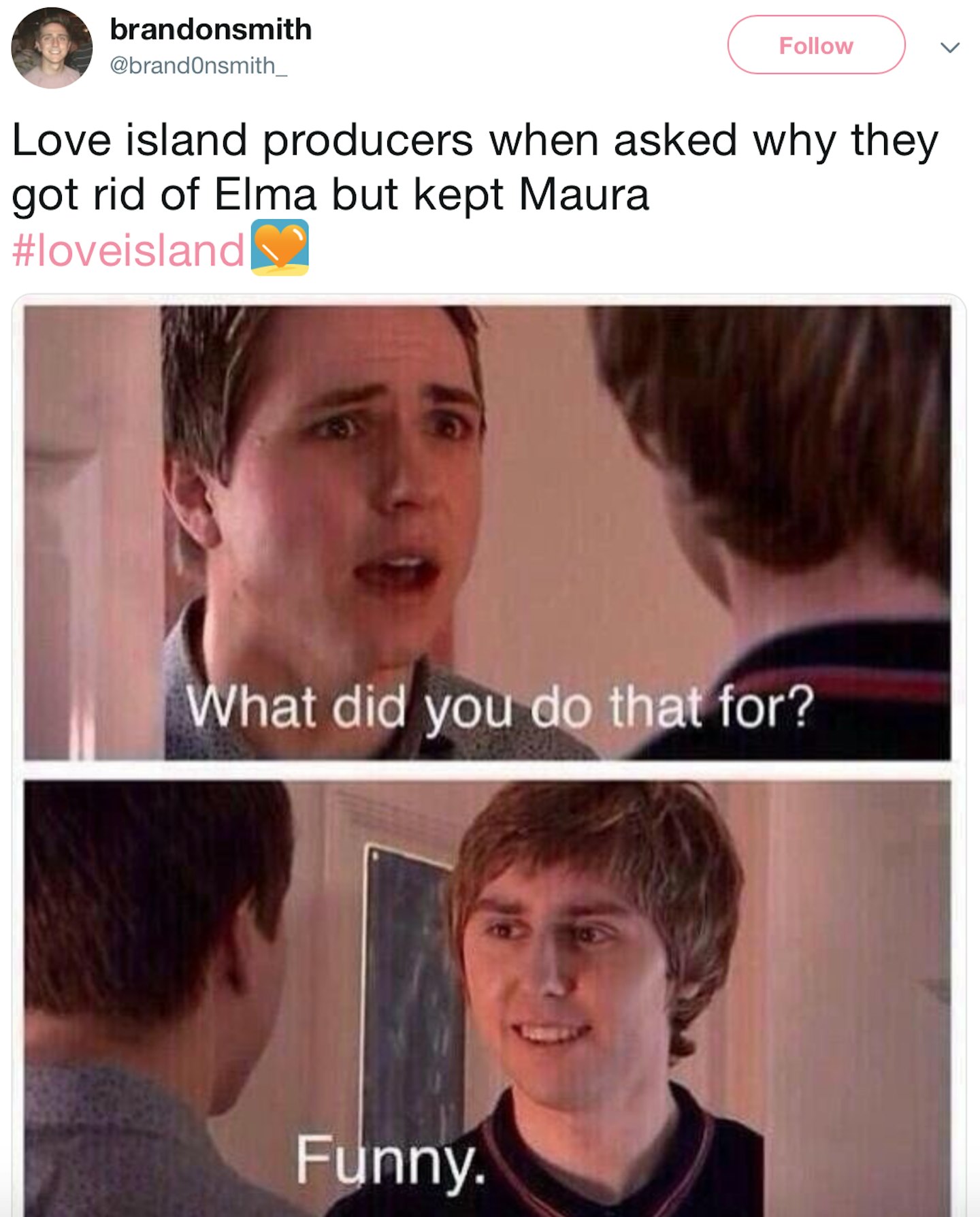 26 of 33
26 of 33love island twitter
 27 of 33
27 of 33love island twitter
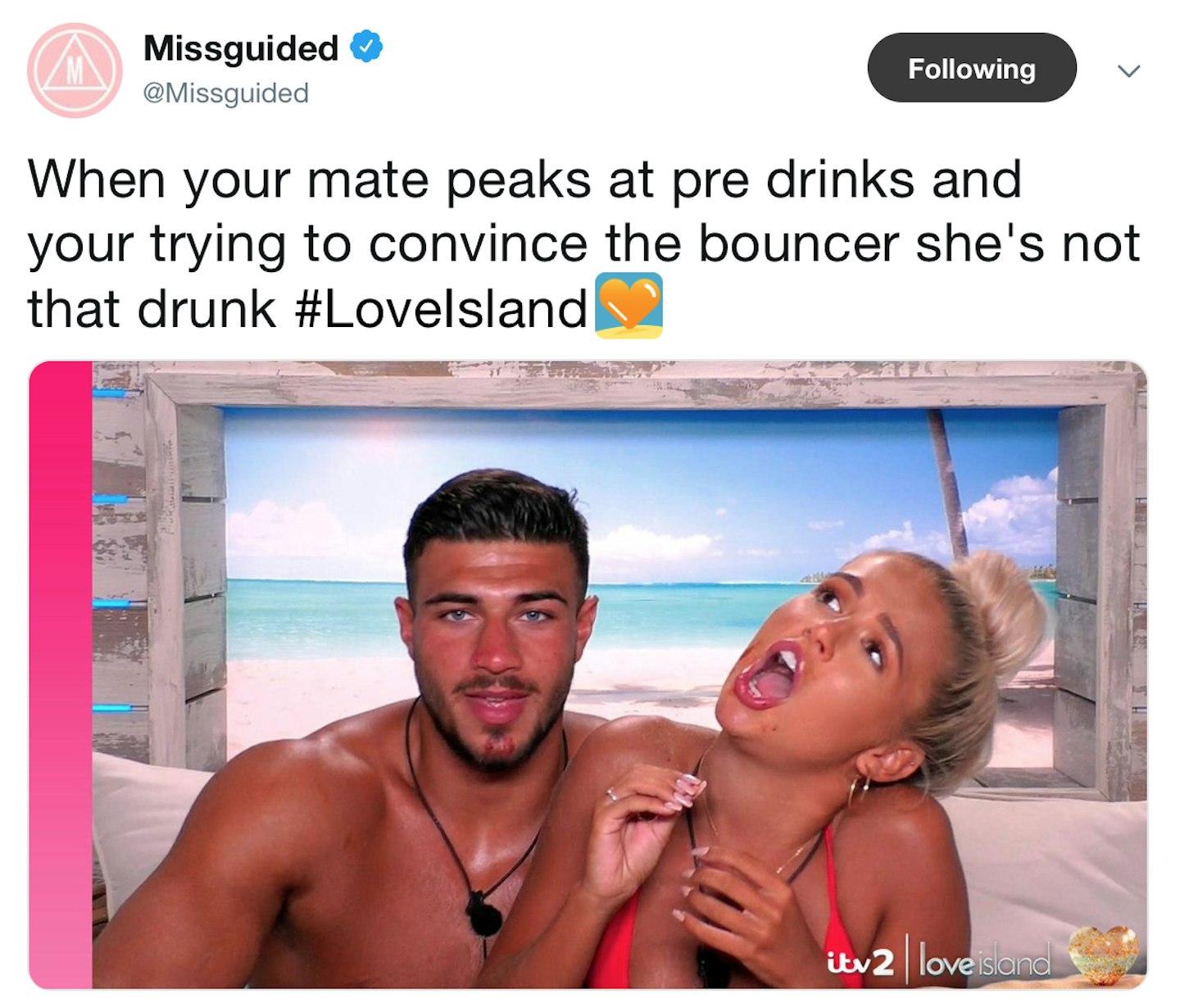 28 of 33
28 of 33love island twitter
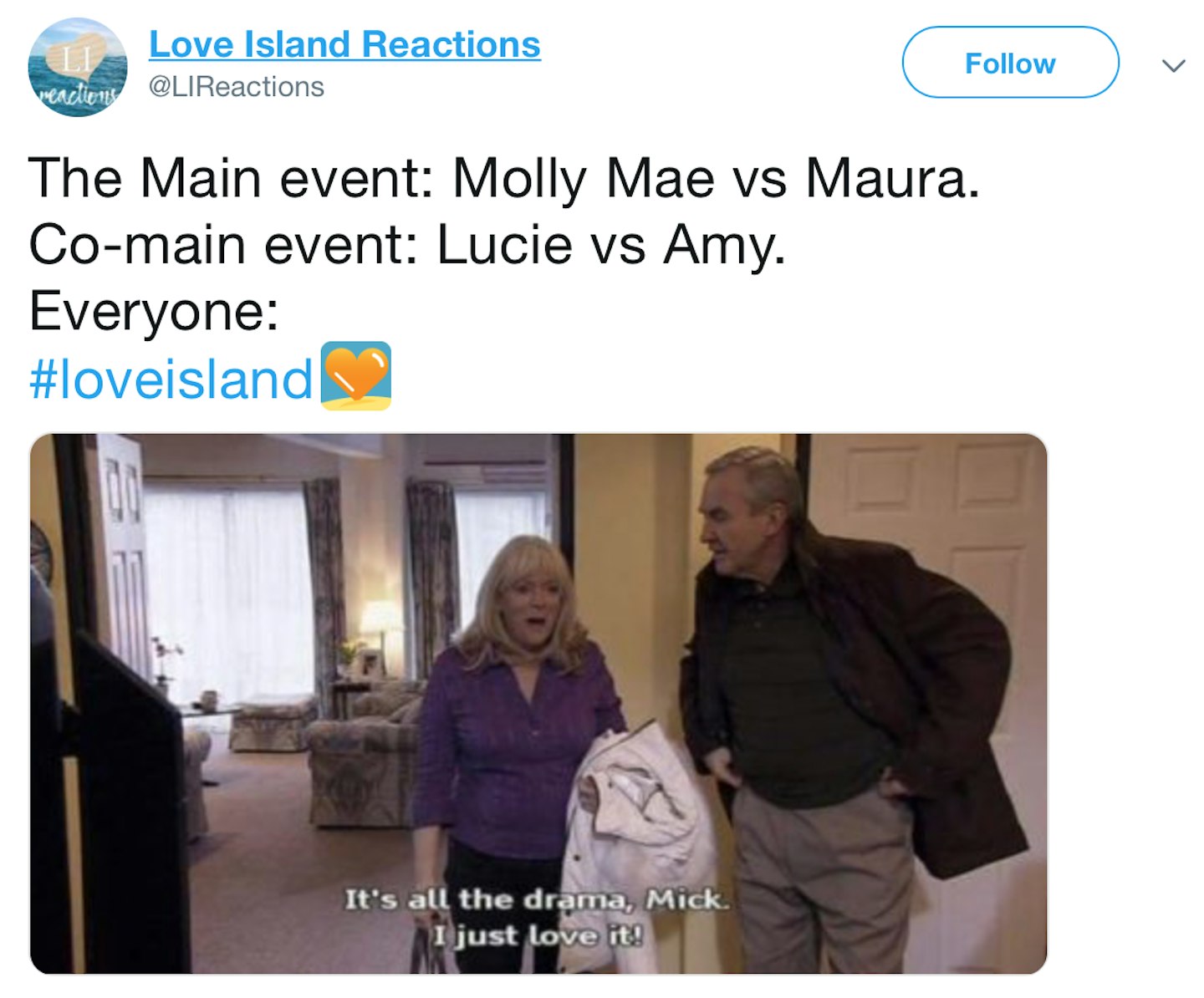 29 of 33
29 of 33love island twitter
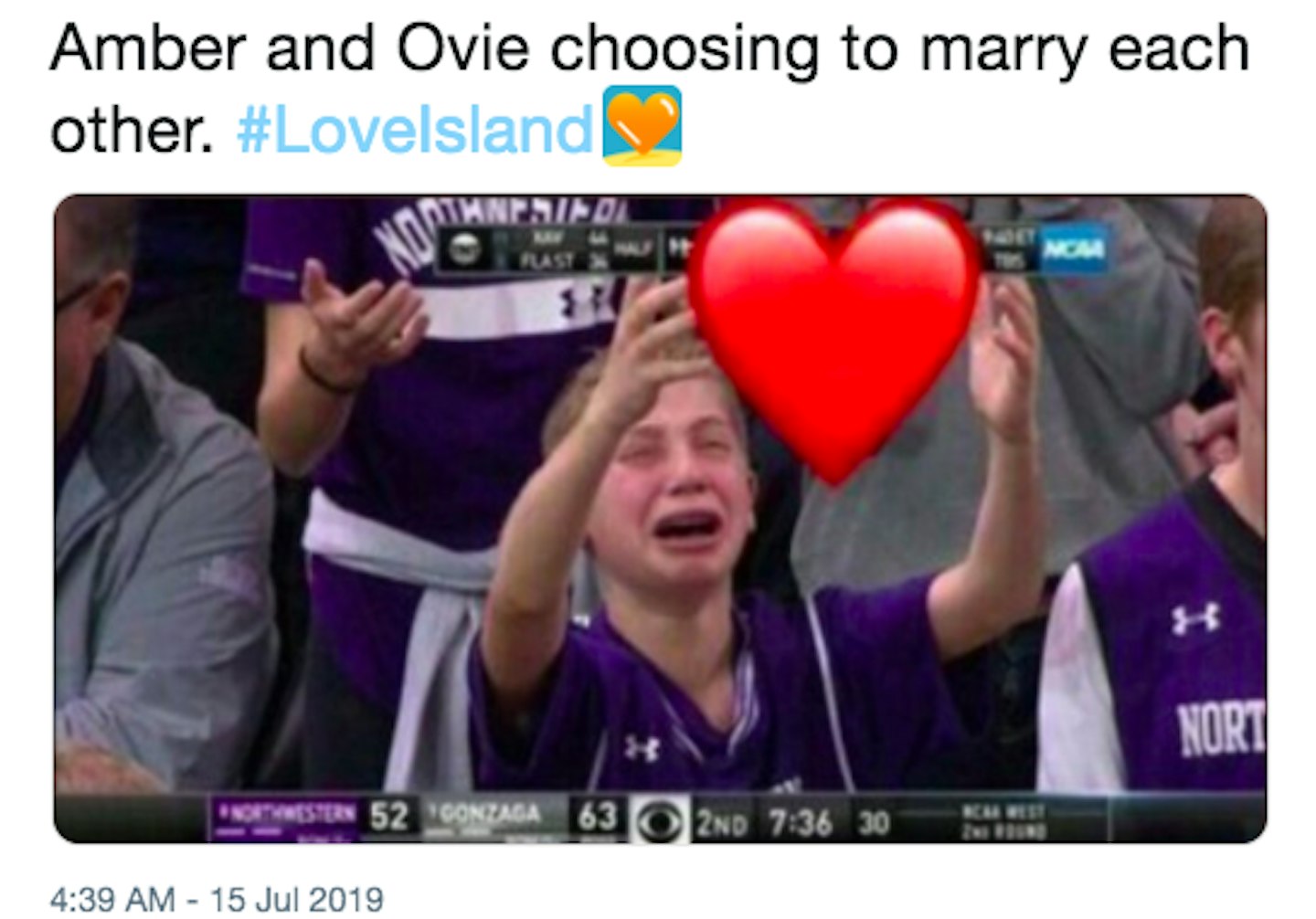 30 of 33
30 of 33love island twitter
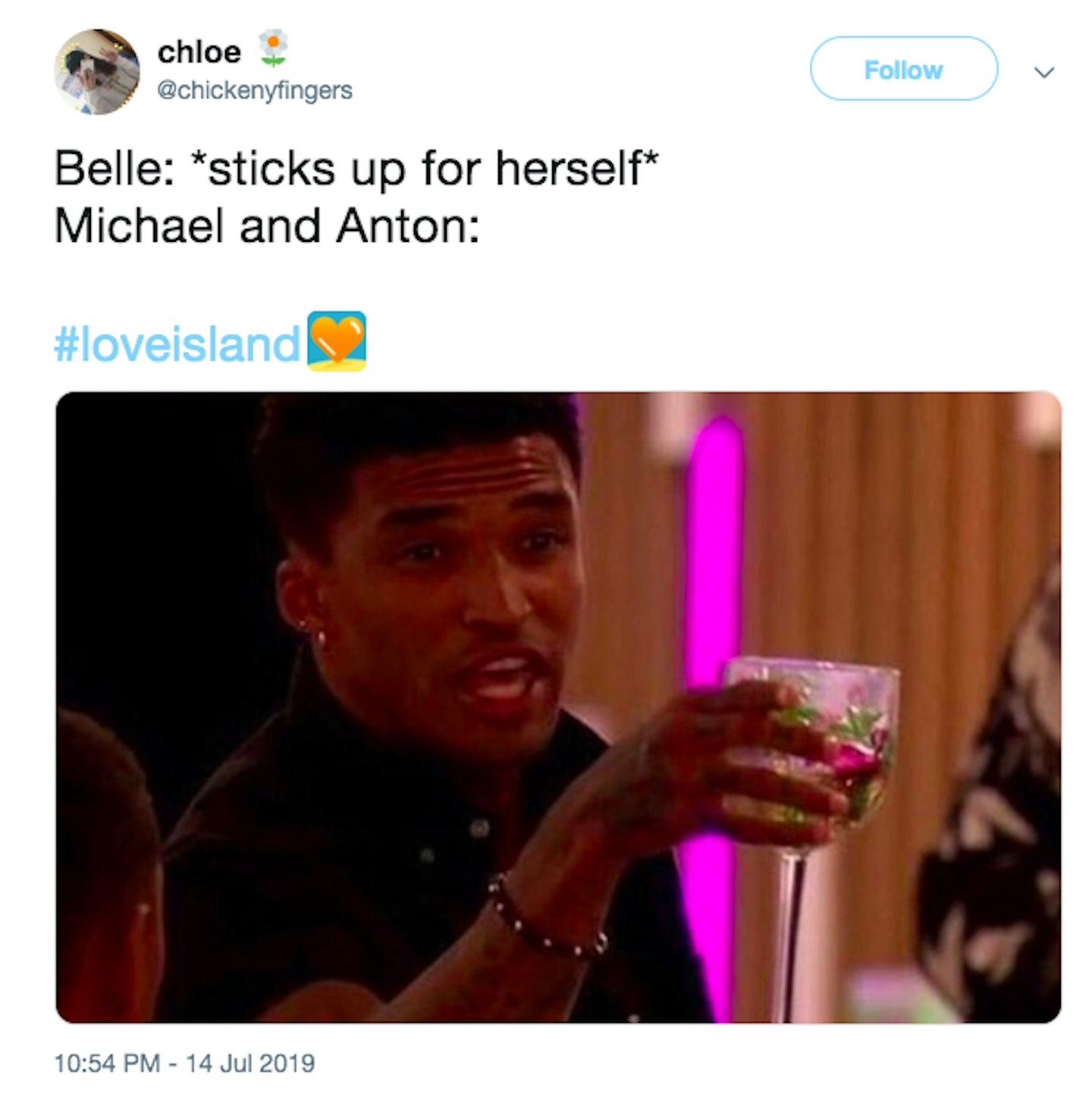 31 of 33
31 of 33love island twitter
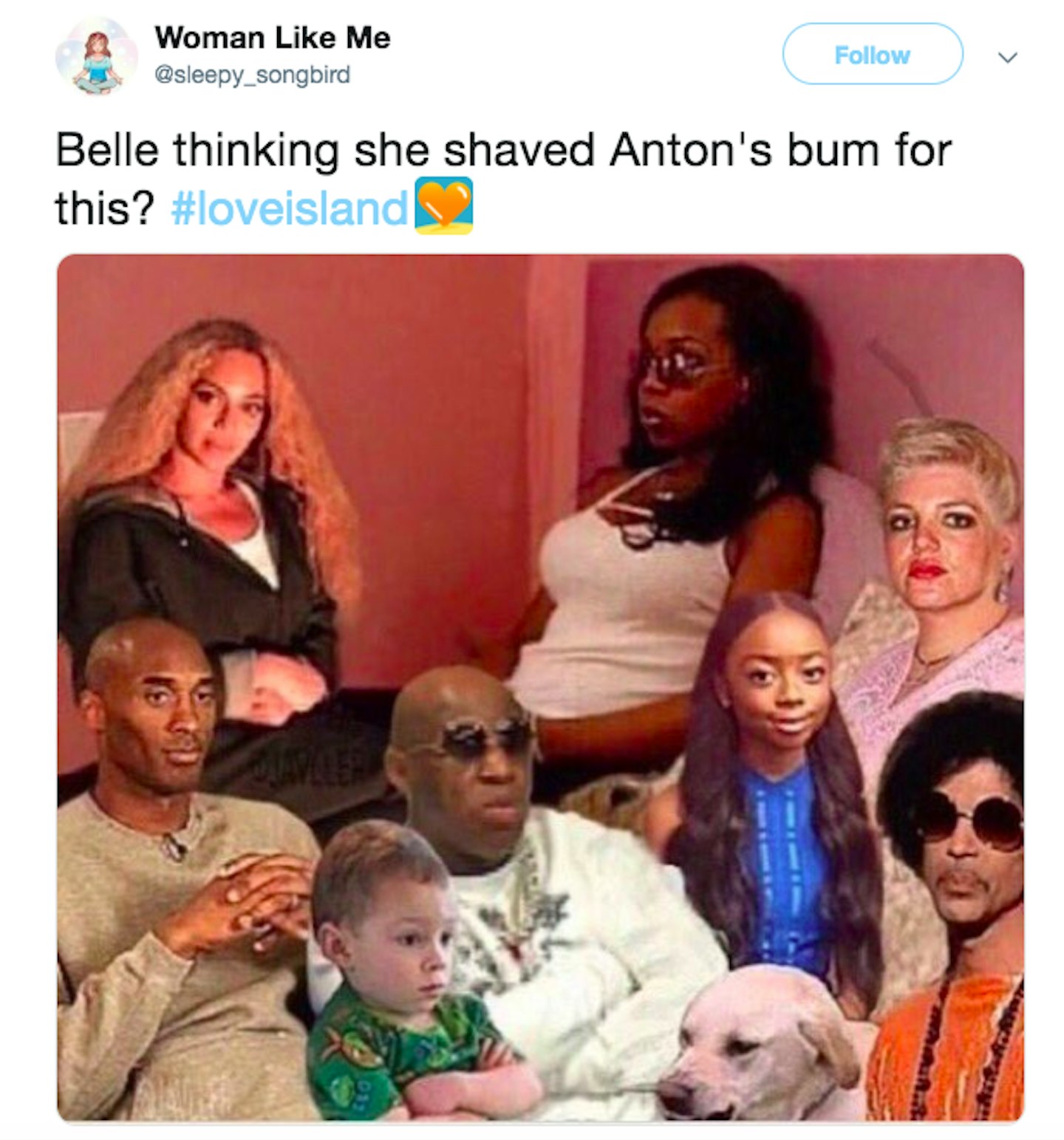 32 of 33
32 of 33love island twitter
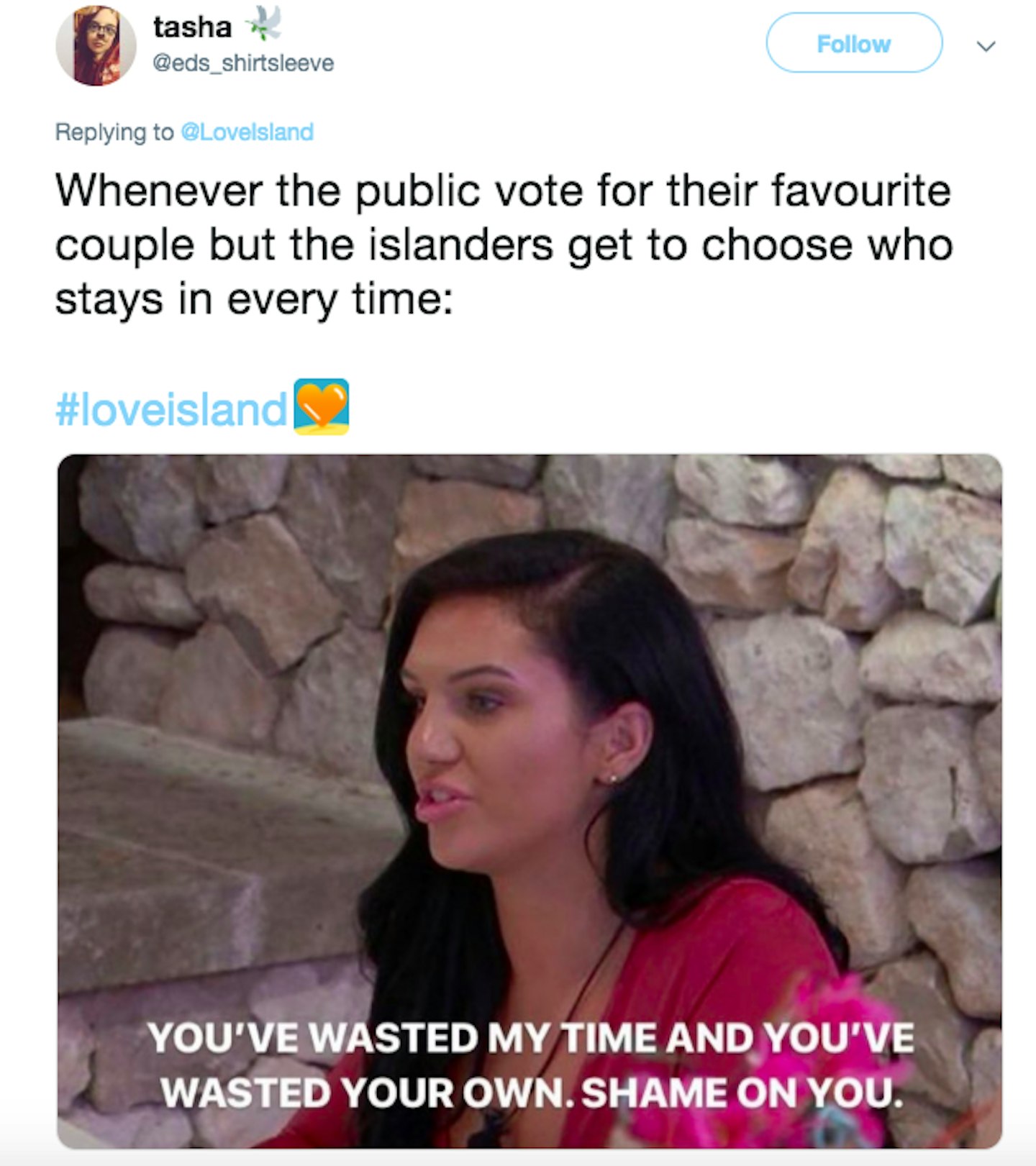 33 of 33
33 of 33.jpg?ar=16%3A9&fit=crop&crop=top&auto=format&w=1440&q=80)